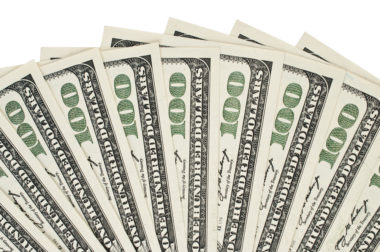In 2018, 1.7 million workers were paid wages at or below the federal minimum wage rate of $7.25 per hour. According to the United States Census Bureau, there were 38.1 million people living in poverty in 2018. Living in poverty means you are unable to earn enough money to afford basic necessities such as food and housing. Unfortunately, many people have experienced an impoverished life, with the cost of living going up each year and minimum wage workers not being able to keep up with it.
Maintaining a living on a minimum wage budget might seem simple, but it becomes problematic when other costs such as outrageous medical bills, or the loss of a job, are at play. In other cases, some people are simply unsure of the best way to budget and save their money.
Fortunately, there are many easy preventative measures you can take to avoid falling into the cycle of living in poverty. Here, you’ll learn about the best ways to create a budget and start saving money as a minimum wage worker. Despite the lack of a significant income, you can still create a savings plan and learn to budget better.
Table of Contents
Build a Budget
No matter how much you earn, it is always in your best interest to create a budget. It is especially important to carefully map out where your money is being spent so that you know how much money you can start to put away into savings without impacting your lifestyle. Below are a few tips and tricks to get you started on building your budget.
Determine Necessary Expenditure
First and foremost, you need to make a list of all of your household expenditures. This might include your rent or mortgage payment, bills for power, cable, water, food, clothing, transportation, medical costs, and miscellaneous spending. A budget should consider all expenses, so be sure to include any additional items that you might spend money on, like child care or health and beauty.
List these items and their costs to create a weekly, monthly, and yearly outlook. This will give you a better idea of how much money you’re spending versus how much money you’re earning.
Be Realistic
Regardless of how much or how little you earn, it’s important to be realistic with your budget. You may be feeling ambitious when you first create your budget and it may be tempting to write one up that tightens the belt on every last penny, but this can actually do more harm than good. Your new plan may not be realistic in the long term, leaving you with a negative outcome and ultimately causing you to go off-budget.
Set Reasonable Goals
It’s important to be realistic with all aspects of your budget, including the goals you set. Be clear and specific in creating goals for yourself. Instead of, “Save up to buy a car,” create a more specific goal like, “Save $1,500 to buy a used car at the dealership around the corner.” This will make your goal more tangible — and you’ll be more likely to achieve it.
To create reasonable and achievable goals, start small and see how you do. This will allow you to get a better idea of how much you can put away on a weekly, monthly, or yearly basis and then make adjustments as needed.
Choose Your Bank or Credit Union Carefully
When it comes to budgeting and saving, it’s important to keep your money in a trusted bank or credit union. Choosing the institution that’s right for you is very important, as different banks and credit unions have different benefits and drawbacks, depending on your situation.
Before depositing your money into a bank or credit union, analyze their policy on overdrafting. In most cases, you’ll be charged a fee if you attempt to withdraw more funds from your account than there actually are. Another thing to consider is the bank or credit union’s interest rates. This will give you a better idea of how your money can work for you and ultimately help you generate more to save.
Set Reminders on Bills
Most banks and credit unions charge overdraft fees, so it’s important to set reminders when your bills are due. This allows you to stay on top of your budget and help to prevent overdrafting. When a reminder indicates that a bill is due, you’ll be able to check your finances through mobile or online banking to ensure there’s enough in your account to cover the costs of the bill.
Manage and Avoid Debt
Debt is the death of any good budget. From medical debt to credit card debt, there are a variety of ways you might find yourself in the hole. Here are a few things you can do to manage the debt that you’re in or avoid going into it completely:
Avoid High-Interest Loans
Avoid high-interest loans, such as payday loans. These short-term loans allow you to obtain money quickly, but the interest you owe on them can be detrimental to your budget.
Manage Credit Card Usage
It might be tempting to spend as much as your credit limit might allow, but doing so may worsen your situation — especially if you don’t have the funds to pay it off. Carrying a balance on a credit card will result in interest charges, creating more of a burden.
To avoid this, manage your credit card usage. If it’s possible, only use a credit card to buy things you can already afford. This way you’re able to make payments in full and on time, avoiding interest and late fees.
Manage Payments
For the sake of your credit, manage your debt payments and ensure they’re paid on time. This will help you maintain a favorable credit score and prevent problems with future purchases. If you’re unable to manage your payments, you may be eligible for a deferment option that allows you to postpone payments until your financial situation is in order.
Shop Strategically
When it comes to budgeting and saving on minimum wage, strategic shopping is necessary. To help cut back on costs and avoid overspending, create a weekly meal plan. To save even more, base your meals on the deals that a store offers in their weekly circular. Doing so will allow you to get more value for less money.
If you’re shopping and you spot a deal that you feel you can take advantage of, do so with caution. When you’re living on a budget, it’s best to only spend money on the things you absolutely need.
Bulk Isn’t Always Better
When possible, it can be very helpful to buy basic items that your household uses often in bulk, like toilet paper and soap. These non-perishable items are a good idea to stock up on, but it’s not always best to buy in bulk on perishable things like food and drink. In the end, the items could go bad or expire before you’ve had a chance to use them, resulting in a waste of money.
Buying in bulk isn’t always a realistic option for people living in low-income circumstances. It may be more beneficial for your budget, but don’t buy in bulk if you can’t afford to do so.
Get a Side Hustle
Anyone can benefit from a side hustle, especially those earning minimum wage. A side hustle can help boost your income and ultimately allow you to save more. Many people choose to work a side hustle so that they can place that money directly into a savings account for an emergency fund.
Side hustles can be any kind of work you do when you have time on top of your full-time job. This can be something you’re passionate about, like writing or photography, or something you already do full-time that you can consult others on, such as finances.
Look Into Government Assistance
If you still need help building a budget and saving money, there are many government assistance programs available to help low-income earners, including welfare. Below are some of the most common assistance programs associated with minimum-wage workers.
Housing
The government offers a number of low-income housing options:
- Privately owned subsidized housing through the U.S. Department of Housing and Urban Development (HUD) allows low-income earners to rent apartments at reduced rates. You can search for this housing by neighborhood.
- Public housing also offers apartments at affordable rates. Contact the public housing agency in your area to learn more about eligibility.
- Section 8 housing allows minimum-wage earners to find a home of their own and use a government-issued voucher to pay for a portion or all of the rent.
Eligibility requirements for housing assistance are based on your annual gross income, whether you qualify as elderly, a person with a disability, or as a family, and your citizenship or eligible immigration status. There are also tax credits available to low-income earners who need assistance with housing costs.
Medical
Additionally, the government offers healthcare assistance programs, including:
- Medicaid provides free or low-cost healthcare benefits to low-income earners. There have been changes to how states handle Medicaid — check your state Medicaid coverage, then determine if you are eligible to receive it. Eligibility requirements for Medicaid vary by state, income, and family size.
- Children’s Health Insurance Program (CHIP) is another government assistance program for those living on a low-income. If you earn too much to qualify for Medicaid, CHIP can provide you with low-cost healthcare for your children. To see if you’re eligible, contact CHIP directly or check online through the government’s open enrollment portal.
SNAP
If you’re unable to afford groceries to feed your family, the government offers assistance. The Supplemental Nutrition Assistance Program (SNAP) provides nutrition benefits to supplement the food budget of low-income families so they can purchase healthy food. Each state has certain eligibility requirements for SNAP.
The government also offers assistance and debt relief options for single parents earning minimum wage. No matter what your situation may be, there are a number of programs out there designed to help you get back on your feet.
It is possible for low-income earners from any walk of life to manage and save money. Get started on your minimum wage budget and savings plan with these tips.
Image Source: https://depositphotos.com/





